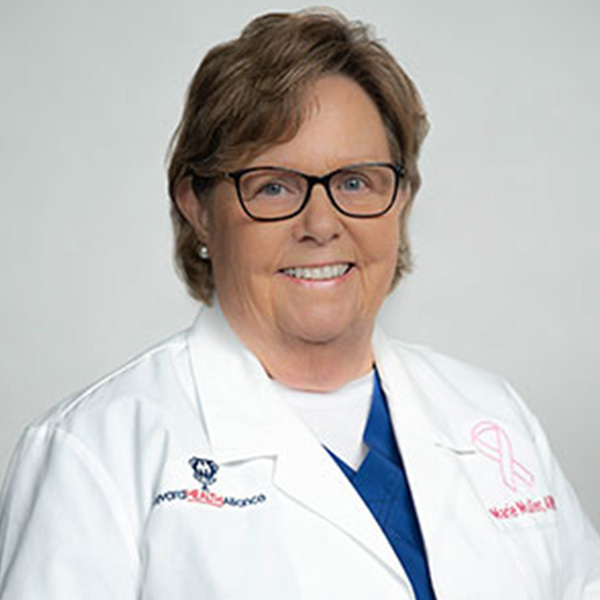Women’s Health & OB / GYN FAQs
Information About Women’s Health & OB/GYNs
Brevard Health Alliance has been the leader in women’s health services and the surrounding communities since 2005. Our team of physicians and advanced practice providers are available to answer any questions you may have about our services and your overall care. Our medical professionals use the latest technology to provide high-quality care in our safe and clean clinic. We offer a wide range of services, including pap testing, mammograms, birth control prescriptions, and prenatal and post-partum care. Below, you can find some of the most frequently asked questions about our services. Learn more, and then schedule your appointment.
Women’s Health
It is recommended that everyone be seen for a yearly check-up to address health concerns and perform a basic exam to ensure normal and healthy development. Your family medicine or pediatric provider can discuss with you what type of services might be appropriate based on your age, health, and other factors, and they may refer you to someone who specializes in women’s health to make sure you are getting the care you need. Before you become sexually active, it is a good idea to talk about ways to protect yourself from sexually transmitted diseases and to prevent pregnancy if that is a concern. Once you are sexually active, it is recommended to have regular checkups to test for infections.
There are also specific tests recommended to screen for cancer in women, including pap smears and mammograms.
A Pap test sometimes referred to as a Pap smear, is a procedure performed by your provider to screen for cervical cancer. During the pap smear, the provider will insert a tool called a speculum into your vagina, which allows them to see the cervix. Next, they will use a swab or brush to collect cells from the cervix. The sample will be tested for signs of any cancerous or pre-cancerous cells. We normally receive the results back in just a few days. Women between the ages of 21 and 29 should have a Pap smear at least every three years. Those ages 30 to 65 can schedule a screening every five years, provided their previous pap smear results come back normal. Even though you may only need a pap smear every 3-5 years, you should still see your provider yearly for routine reproductive health screenings.
Most people feel nervous about their first reproductive health visit, especially if it includes a pelvic exam. Your provider will put you at ease by walking you through exactly what you can expect during your visit, and you will be given the opportunity to ask questions and express any concerns you may have. Our goal is to make you feel comfortable while providing high quality care.
A mammogram is an X-ray of your breasts. The X-ray is specifically designed for the breast is used to identify cancerous cells before they can be felt. The process can cause some discomfort but only takes a few moments to complete. A radiologist will read the results of the mammogram and provide their findings as soon as possible. Many people start receiving mammograms around age 40 but the age of your first mammogram will be dependent on your personal and family history, or if a lump is felt in your breast during a routine breast exam.
One out of every eight women will develop breast cancer in their lifetime. In fact, breast cancer is the second most common type of cancer found in women. Luckily, early detection can drastically increase survival rates. This is why routine breast exams and mammograms are so important. Early detection saves lives.
Yes, Gynecologists, OBGYNs, Pediatricians, and Primary Care Providers can all test for STIs. While some STIs can be visually observed during your exam, some STI testing requires a blood draw, vaginal swab, or urine sample. A burning sensation when you urinate, frequent urination, vaginal discharge, or sores around your genitals may be an indication of an STI. However, many STIs have no symptoms at all so routine screening is very important for all persons who are sexually active. The types of STIs your provider can test for include:
- HIV
- Syphilis
- Gonorrhea
- Chlamydia
- Human Papilloma Virus (HPV)
- Trichomoniasis
- Bacterial Vaginosis
- Yeast
- Hepatitis B
- Hepatitis C
The CDC recommends all sexually active persons at risk for exposure to STIs be tested for HIV, Syphilis, Gonorrhea, and Chlamydia at least yearly and/or when they have a new sexual partner. Your provider will recommend additional tests based on your symptoms and sexual history. Testing for STIs is a routine part of healthcare, and with proper treatment, all STIs can be managed or cured.
Yes! Gynecologists, OBGYNs, Pediatricians, and Primary Care Providers can all provide you with short and long-term contraceptives, including IUDs, pills, depo, and patches. Based on your health goals and history, we can speak with you about what type of contraceptive is best for you. We will also provide information depending on whether you plan to have children or not in the future. We will provide contraceptives based on your individual needs.
OB/GYN
An OB/GYN is a licensed medical professional providing gynecological and obstetrical care for women of reproductive age. While gynecologists provide treatment and check-ups for women’s reproductive systems, an obstetrician deals specifically with prenatal care, pregnancy, and labor and delivery. However, because both fields are closely related, OB/GYNs study both disciplines to provide comprehensive care for women.
If you have a positive pregnancy test, please call the Women’s Center right away to be scheduled for your first appointment. It is vital to your health and the health of your baby that you begin prenatal care in the first trimester. We will schedule your first appointment at 8 weeks. Your OBGYN is available to guide you through pregnancy from the very beginning and provide post-partum care. Each pregnancy is different, so it is important that you meet with an OBGYN even if you have been pregnant before. Our team can help you determine your prenatal care schedule and your due date. Routine prenatal appointments provide your OBGYN with significant insight.
- Call The Women’s Center directly at 321-425-4807 as soon as you have a positive pregnancy test.
- First Trimester – We schedule a prenatal check-up once a month during the first trimester.
- Second Trimester – From weeks 28 to 36, we will schedule prenatal check-ups every two weeks.
- Third Trimester – In your third trimester, we will increase the number of prenatal visits to once a week until delivery.
- These are general guidelines. Your doctor may recommend a more frequent schedule.
We will check for the fetal heart rate for the first time when you are 12 weeks pregnant.
Every pregnancy is different. However, some moms can feel some movement as early as 20 to 22 weeks. Once you have reached 28 weeks, you will notice daily movement.
While you may need to stop taking some medications once you become pregnant, you should speak to your primary care doctor or your OBGYN for more information before making any changes. They will guide you on which medications are safe to continue to take and which should be stopped. They may also be able to recommend a different type of medication that is safe to take while pregnant. Do not stop or start any medication without first speaking to the prescribing physician or your OBGYN.
Morning sickness is a common occurrence during the first trimester, and it usually wanes during the second and third. While it is called “morning sickness,” you may experience the symptoms of nausea and/or vomiting any time of the day. The best way to combat morning sickness is to eliminate greasy or spicy food from your diet. If you feel nauseous, it may help to eat something bland such as toast to settle your stomach. We also recommend never taking medication on an empty stomach as this can worsen the symptoms. If you are experiencing nausea or vomiting, be sure to tell your OBGYN so they can closely monitor your symptoms. They may also prescribe medications to help with your symptoms.
During pregnancy, you may experience swollen feet or ankles. That is because of the extra fluid in your body. Mild swelling is normally not a danger to you or your baby, but it can be uncomfortable. To reduce swelling, we recommend elevating your feet, wearing comfortable, appropriately sized socks and shoes, and avoiding standing for extended periods. Your provider may also recommend dietary modifications like limiting your sodium intake, and may also order compression stockings. Swelling is closely monitored by your provider to ensure there are no underlying issues like high blood pressure.
































































































































